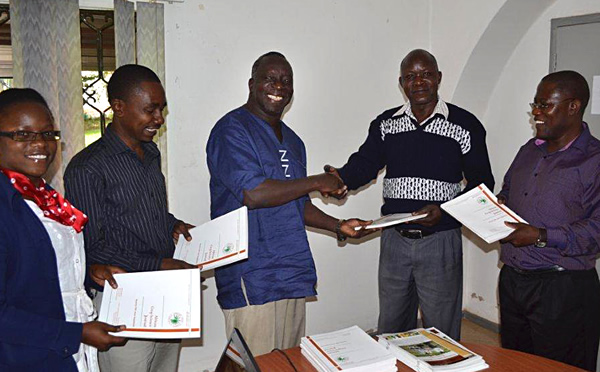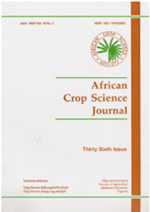
African MSc students funded through the SCARDA project, with assistance from RUFORUM, have had fifteen research papers published in a Special Issue of the African Crop Science Journal.
SCARDA (Strengthening Capacity for Agricultural Research and Development in Africa) was a 4-year project that ended in December 2010. It was coordinated by the Forum for Agricultural Research in Africa (FARA) with support from the Natural Resources Institute, and funded by the UK Department for International Development (DFID). The project worked with research and education organisations in ten countries in sub-Saharan Africa, and one of the aims of the project was to enhance the research quality of these organisations through a combination of postgraduate training, short courses and mentoring.
Students for the postgraduate training were selected in research areas that were identified as priorities by their organisations, and the topic for their research projects was carefully considered to ensure that the findings would contribute directly to their organisation's programmes.
In his Foreword to the Special Issue, Tim Chancellor (NRI's Director of Capacity Strengthening & Learning, and SCARDA Coordinator), states that the papers cover a variety of key research areas ranging from genetic analysis of important crops such as cassava and rice, to issues affecting pastoralists in semi-arid regions.
 Each of the papers was subjected to the Journal's standard procedures for peer review. The fact that fifteen papers were considered to be worthy of publication is a measure of the high quality research that was carried out by the students. It also reflects the quality of the MSc programmes in which the students were registered and the high level of support provided through the SCARDA project.
Each of the papers was subjected to the Journal's standard procedures for peer review. The fact that fifteen papers were considered to be worthy of publication is a measure of the high quality research that was carried out by the students. It also reflects the quality of the MSc programmes in which the students were registered and the high level of support provided through the SCARDA project.
Several organisations contributed this support, but the role of the Regional Universities Forum for Capacity Building in Agriculture (RUFORUM) was especially important. RUFORUM highlighted the need for students to receive orientation in areas that are not usually included in MSc curricula; areas such as scientific writing and soft skills development. The courses that the students attended helped them in the preparation of the papers and enabled them to make a quick and effective contribution when they returned to their organisations.

